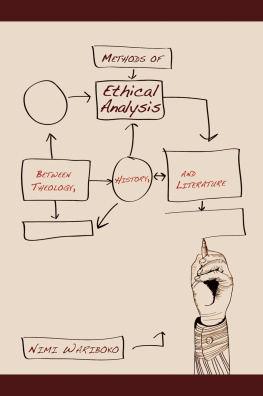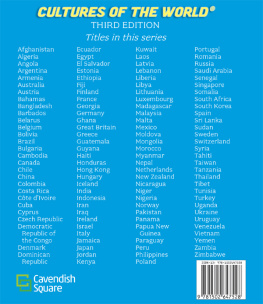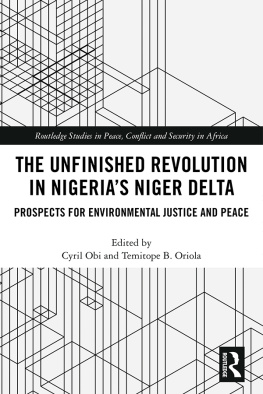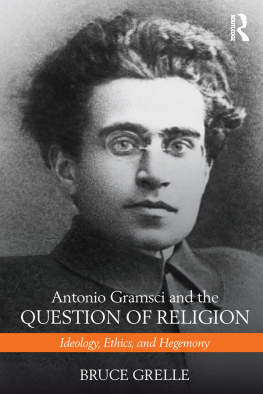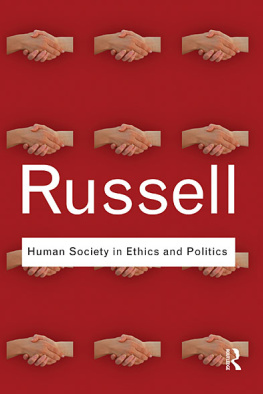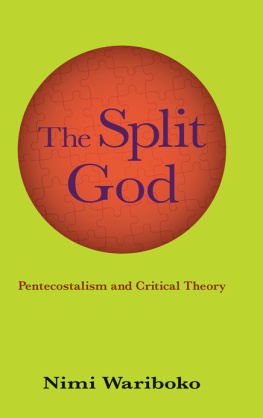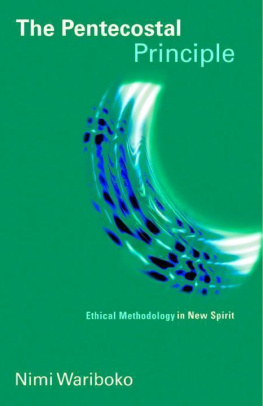Wariboko - Ethics and Time: Ethos of Temporal Orientation in Politics and Religion of the Niger Delta
Here you can read online Wariboko - Ethics and Time: Ethos of Temporal Orientation in Politics and Religion of the Niger Delta full text of the book (entire story) in english for free. Download pdf and epub, get meaning, cover and reviews about this ebook. year: 2010, publisher: Lexington Books, genre: Romance novel. Description of the work, (preface) as well as reviews are available. Best literature library LitArk.com created for fans of good reading and offers a wide selection of genres:
Romance novel
Science fiction
Adventure
Detective
Science
History
Home and family
Prose
Art
Politics
Computer
Non-fiction
Religion
Business
Children
Humor
Choose a favorite category and find really read worthwhile books. Enjoy immersion in the world of imagination, feel the emotions of the characters or learn something new for yourself, make an fascinating discovery.

- Book:Ethics and Time: Ethos of Temporal Orientation in Politics and Religion of the Niger Delta
- Author:
- Publisher:Lexington Books
- Genre:
- Year:2010
- Rating:5 / 5
- Favourites:Add to favourites
- Your mark:
- 100
- 1
- 2
- 3
- 4
- 5
Ethics and Time: Ethos of Temporal Orientation in Politics and Religion of the Niger Delta: summary, description and annotation
We offer to read an annotation, description, summary or preface (depends on what the author of the book "Ethics and Time: Ethos of Temporal Orientation in Politics and Religion of the Niger Delta" wrote himself). If you haven't found the necessary information about the book — write in the comments, we will try to find it.
Wariboko: author's other books
Who wrote Ethics and Time: Ethos of Temporal Orientation in Politics and Religion of the Niger Delta? Find out the surname, the name of the author of the book and a list of all author's works by series.
Ethics and Time: Ethos of Temporal Orientation in Politics and Religion of the Niger Delta — read online for free the complete book (whole text) full work
Below is the text of the book, divided by pages. System saving the place of the last page read, allows you to conveniently read the book "Ethics and Time: Ethos of Temporal Orientation in Politics and Religion of the Niger Delta" online for free, without having to search again every time where you left off. Put a bookmark, and you can go to the page where you finished reading at any time.
Font size:
Interval:
Bookmark:
Ethics and Time
Ethics and Time
Ethos of Temporal Orientation in Politics and Religion of
the Niger Delta
Nimi Wariboko
Lexington Books
A division of
ROWMAN & LITTLEFIELD PUBLISHERS, INC.
Lanham Boulder New York Toronto Plymouth, UK

Published by Lexington Books
A division of Rowman & Littlefield Publishers, Inc.
A wholly owned subsidiary of The Rowman & Littlefield Publishing Group, Inc.
4501 Forbes Boulevard, Suite 200, Lanham, Maryland 20706
www.lexingtonbooks.com
Estover Road, Plymouth PL6 7PY, United Kingdom
Copyright 2010 by Lexington Books
All rights reserved . No part of this book may be reproduced in any form or by any electronic or mechanical means, including information storage and retrieval systems, without written permission from the publisher, except by a reviewer who may quote passages in a review.
British Library Cataloguing in Publication Information Available
Library of Congress Cataloging-in-Publication Data
Wariboko, Nimi, 1962
Ethics and time : ethos of temporal orientation in politics and religion of the Niger Delta / Nimi Wariboko.
p. cm.
Includes bibliographical references (p. ) and index.
ISBN 978-0-7391-5028-3 (cloth : alk. paper) ISBN 978-0-7391-5030-6 (electronic)
1. Christian ethics. 2. Social ethicsNigeriaNiger River Delta. 3. TimeMoral and ethical aspectsNigeriaNiger River Delta. 4. Kalabari (African people)Social life and customs. I. Title.
BJ1275.W37 2010
241dc22 2010026993
` The paper used in this publication meets the minimum requirements of American National Standard for Information SciencesPermanence of Paper for Printed Library Materials, ANSI/NISO Z39.48-1992.
Printed in the United States of America
In Memoriam
Dr. Tonye Victor Erekosima (19402008), ibikiabo .
In these pages I argue that we cannot adequately understand a peoples social ethics, their exercise of the human capacity to initiate the new amid ongoing social processes, or their openness to others without first understanding their temporal orientation. The study of temporal orientation will also help ethicists to comprehend a socio-cultural groups vision of the good, role of religion, inclination toward apocalypticism, and its philosophy of history as a whole. Temporal orientation is a moral, economic, and political issue at its core. How has this important topic been studied by religious scholars and social ethicists?
Hitherto, it has been studied as cultures response to rupture of preexisting temporal conditions; to an interruption in a mythic world. The initial rupture became the center of time which simultaneously brought the primordial order to a close and began a new order of time. The cultural group responds to the irruption by reenacting and celebrating it as the time of origin. There is another method of studying temporal orientation. It investigates a peoples preference for any of the three time segments in terms of making decisions, especially about resource allocation. Scholars in this group might argue that the citizens of the United States prefer the present to the future as revealed by their savings rate or state that the Japanese are more future-oriented because they tend to postpone present consumption in preference for future welfare.
These two forms of temporal orientation are reactionary and are actually secondary to an active, creative, and much more fundamental type that is going on all the time. This third form is founded and animated by the creation of time gaps . These are ruptures of preexisting temporal conditions taking place not in a mythic world, but in contemporary social orders and they are created and sustained by actors in every generation. This view of orientation regards the appearance of humans on earth as an event that not only creates the time segments, but also establishes time itself. The event of humans appearing on earth is not only an inter-vention (a coming among two existing infinities of time that reorders time), but also marks human beings as initiators of new beginnings amid ongoing, automatic social and natural processes.
The proper identification and theorization of this third form, the development of a rigorous methodology for its study, and the empirical analysis of a specific cultural group in order to show its overall practical usefulness for the field of social ethics are the goals of this book.
Based on this third form, let me state the notion of temporal orientation that will guide the development of this study. For our purposes, temporal orientation does not refer to a cultures emphasis on the past, present, or the future; nor does it refer to time of origins that its members must ritually re-approach and re-appropriate ceaselessly. Rather, we understand temporal orientation as the production of a time gap a concept introduced by Hannah Arendt. By time gap she means a new temporality by which humans insert themselves between the infinite past and the infinite future, thereby exercising their uniquely and supremely human capacity to begin something anew and display the distinctiveness of each individual.
In this light, temporal orientation is always keyed to freedom, the capacity to begin. Freedom will play a central role in our discussion of temporal orientation. Freedom is an event. Arendts notion of freedom emphasizes natality, emergence of the new, and the primordial and contemporary insertion ( inter-venir ) of human beings in time. As Arendt put it,
Beginning, before it becomes a historical event, is the supreme capacity of man; politically, it is identical with mans freedom. Initium ut esset homo creatus est that a beginning be made man was created said Augustine. This beginning is guaranteed by each new birth; it is indeed every man.
My appropriation and development of Arendts notion of time gap is enhanced both by philosopher Alain Badious theory of the subject and sociologist-theologian Richard Fenns typologies of temporal orientation. By creatively synthesizing their theories, I intend to provide a well-reasoned account of the connectedness and dynamics of the relationship between nomos , ethos , and kairos . These are three concepts or names which I consider crucial for investigating temporal orientation and freedom. With their aggregate perspective in mind, we peer through the lens of temporal orientation-freedom to freshly view the ethical categories of politics, religion, apocalypticism, and the philosophy of history.
The first of our seven chapters, Creating Time Gaps, lays out the ethical theory of temporal orientation. It explores how a socio-cultural group breaks into time to construct a temporality between the past and the future where it can resist human vulnerability to chronic (chronological) time. Once initiated, this gap between the infinite past and the infinite future can only be sustained and nourished by freedom, the human capacity to initiate the new amid ongoing, automatic social processes. This requires that the actors or subjects be faithful to and propagate the rupture in historicization initially caused by the creation of the time gap.
In chapter 2, Chiefs: Subjects to Freedom, we see how the Kalabari people of the Niger Delta (southern Nigeria) embody freedom in persons and institutions and we consider how the Kalabari political philosophy centers on beginnings ( natality ). Among this people, chiefs symbolize as well as instantiate the freedom to begin a new kind of time and to effect passage to new conditions of being, or existence. From the Kalabari data, and with help from Hannah Arendt and Alain Badiou, we learn that issues of freedom (the human capacity to initiate the new) and notions of subject and event are imbricated in temporal orientation. Freedom in relation to humans and gods is discussed later in chapter 3, and in chapter 4 we show how fidelity to an event can trigger apocalyptic thinking.
Font size:
Interval:
Bookmark:
Similar books «Ethics and Time: Ethos of Temporal Orientation in Politics and Religion of the Niger Delta»
Look at similar books to Ethics and Time: Ethos of Temporal Orientation in Politics and Religion of the Niger Delta. We have selected literature similar in name and meaning in the hope of providing readers with more options to find new, interesting, not yet read works.
Discussion, reviews of the book Ethics and Time: Ethos of Temporal Orientation in Politics and Religion of the Niger Delta and just readers' own opinions. Leave your comments, write what you think about the work, its meaning or the main characters. Specify what exactly you liked and what you didn't like, and why you think so.

